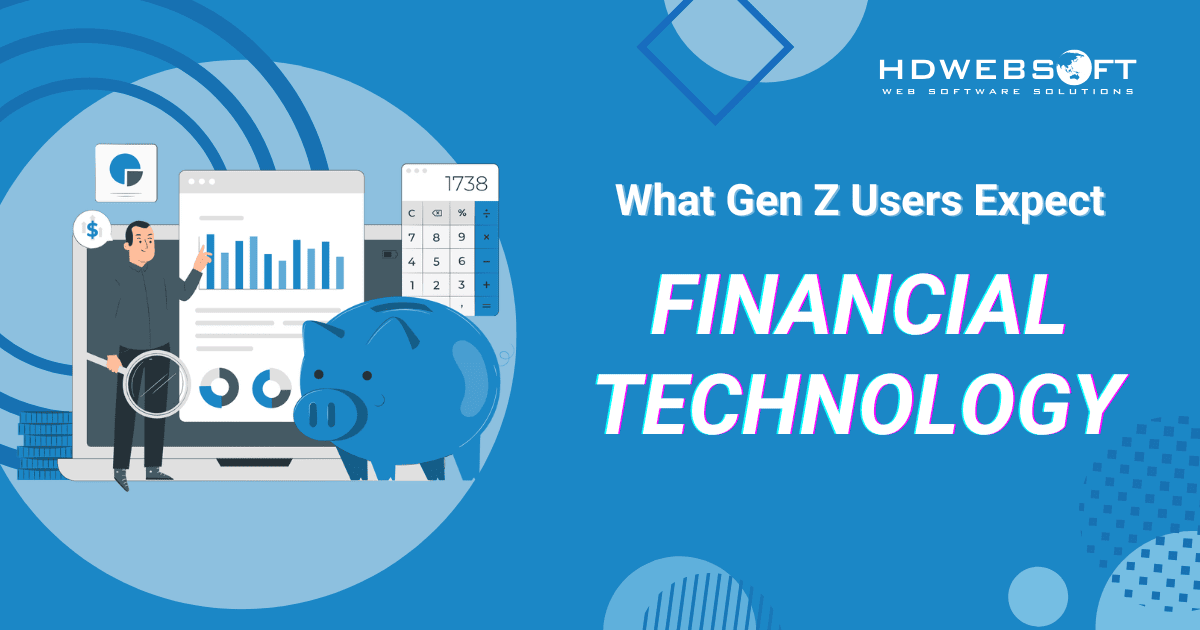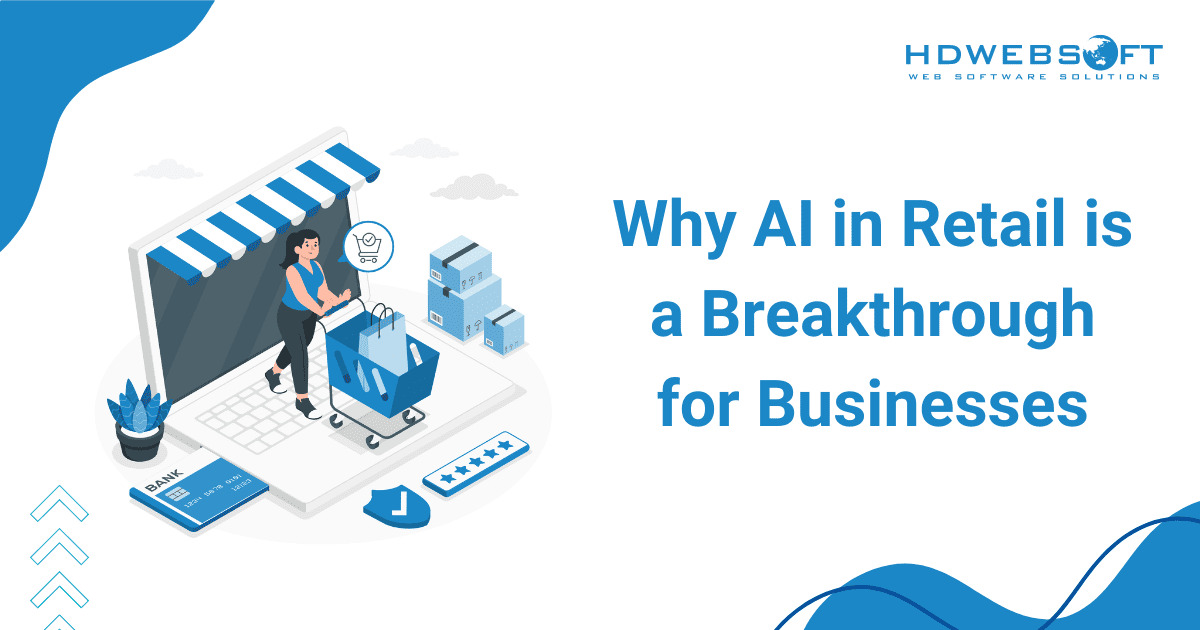
Why AI in Retail is a Breakthrough for Businesses
AI in retail has been a driving force behind the massive transformations the industry has undergone in recent years. From personalized shopping experiences to streamlined inventory management, AI is revolutionizing how businesses operate and how customers interact with brands. As technology continues to evolve, retailers are increasingly embracing AI to stay competitive and meet customer expectations in the digital age.
In this blog, we’ll explore the definition of AI in retail, its key purposes, and the types of AI used in the industry. Furthermore, we will explain why it’s essential for retailers and what the future holds for this exciting technology.
What is AI in retail?
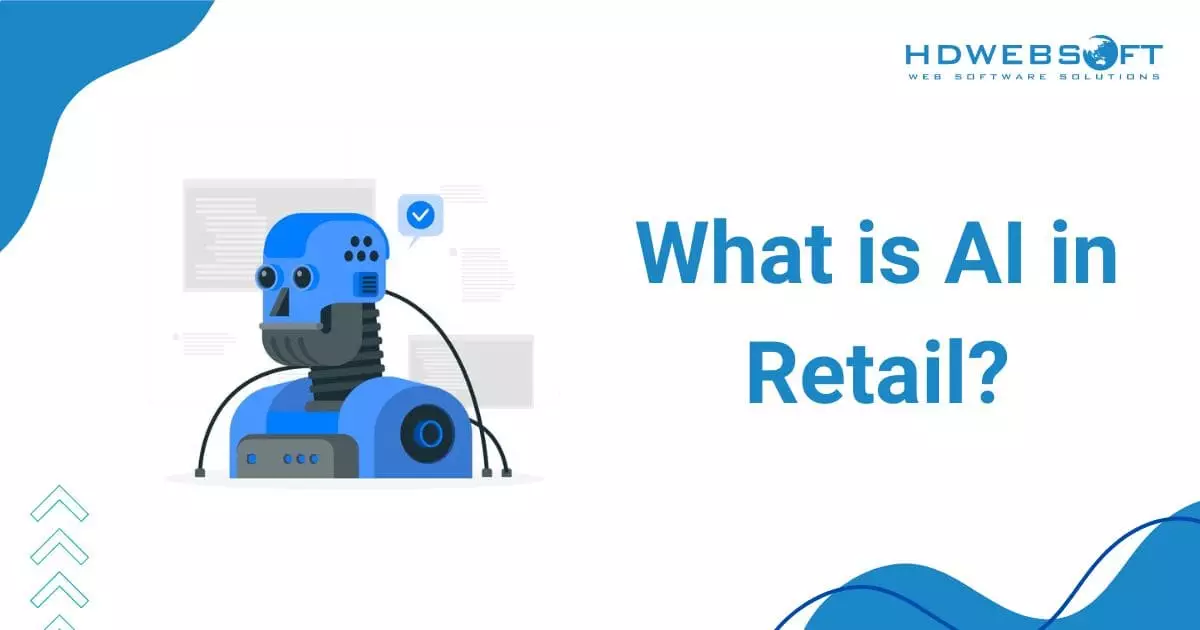
AI in retail refers to the use of artificial intelligence technologies to enhance and optimize various aspects of the shopping experience and business operations. Whether it’s personalizing product recommendations or automating supply chain management, AI helps retailers better understand and serve their customers.
At its core, AI is all about analyzing large amounts of data and using that information to make smarter decisions. In retail, this could mean suggesting products to customers based on their browsing history or predicting inventory needs to avoid stockouts. Furthermore, it can involve using chatbots to answer customer questions in real-time. It’s all about making shopping more efficient, personalized, and customer-friendly.
For example, have you ever noticed how an online store seems to know exactly what you’re looking for, offering personalized deals or recommending items you might love? That’s AI in retail at work. From virtual shopping assistants to cashier-less stores, AI is transforming how we shop by creating more seamless and engaging experiences.
By tapping into AI-driven retail software, retailers can deliver what customers want—often before they even know they want it. At the same time, it optimizes behind-the-scenes processes, making it a win-win for businesses and shoppers alike.
Key purposes of AI in retail commerce
Artificial intelligence in retail is rapidly becoming one of the most transformative forces in the industry. Retailers are able to optimize their operations, offer personalized customer experiences, and make data-driven decisions in real time. But what exactly are the purposes of this technology? Let’s break it down.
Enhancing the Consumer Experience
One of the most prominent purposes of retail AI is to enhance the overall customer experience. Today’s shoppers expect a personalized, smooth experience, whether they’re shopping online or in a physical store. AI helps retailers deliver exactly that.
Through ML algorithms, AI in retail analyzes customer data, such as browsing history, purchase patterns, and product preferences, to offer personalized recommendations and promotions. Have you ever noticed how online stores seem to suggest items you didn’t even know you wanted? That’s AI working behind the scenes.
Not only does this improve customer satisfaction, but it also increases the likelihood of repeat purchases. Shoppers feel like the store “knows” them and their preferences, creating a more engaging shopping experience.
Optimizing Inventory Management
Efficient inventory management is a cornerstone of retail success, and retail AI plays a key role in optimizing this process. AI-powered tools can predict product demand with remarkable accuracy by analyzing historical sales data and market trends. They can even factor in external elements like weather conditions or local events to refine their predictions. This predictive capability helps retailers avoid stockouts (running out of products) and overstocking (having too much inventory), which can hurt profits.
For example, AI in retail can suggest when a retailer should order more of a popular product or when it’s time to phase out a slower-moving item. This level of efficiency reduces costs and ensures that customers can find what they’re looking for, enhancing their shopping experience.
Dynamic Pricing for Maximized Profitability
Another crucial purpose of artificial intelligence in retail is dynamic pricing. Retailers have always adjusted prices based on supply and demand, however, AI takes this to a whole new level.
AI algorithms can analyze competitor pricing, customer demand, and other real-time factors to determine the optimal price for any product. This is done so quickly that prices can be adjusted multiple times a day. As a result, it allows retailers to stay competitive while maximizing profitability.

AI in retail enables dynamic pricing, where pricing strategies are automatic.
For instance, during peak shopping seasons like Black Friday or holiday sales, AI can help retailers adjust prices in real-time. This ensures they capitalize on high demand without underselling their inventory.
Streamlining Customer Service with AI Assistants
AI in retail is also transforming customer service in the industry. Chatbots and virtual assistants are becoming a common feature on retail websites and in-store kiosks. Additionally, voice chatbots are gaining popularity, allowing customers to engage with brands through natural language conversations, enhancing convenience and accessibility.
These AI-powered assistants can answer customer questions, help them find products, and even assist with completing purchases, all without the need for human intervention. The benefits are twofold: customers get quick, accurate responses, and retailers can reduce the workload on their human staff.
For example, a chatbot on an e-commerce site can guide customers through product searches and provide sizing recommendations. It can also suggest items to complement what they’ve already purchased. In physical stores, AI-powered kiosks can help shoppers navigate the store and find exactly what they need.
Boosting Marketing Campaigns
Retailers also use AI in retail to boost the effectiveness of their marketing and advertising campaigns. AI analyzes customer behavior and engagement across various platforms, whether it’s social media, email newsletters, or in-store purchases. Desirably, retailers can craft more targeted marketing messages.
Moreover, the technology ensures that the right offer reaches the right customer at the right time. Personalized email campaigns, social media ads tailored to individual preferences, and location-based promotions are all driven by AI.
By understanding what customers want and when they want it, retailers can significantly improve their marketing ROI.
Use Cases of Artificial Intelligence in Retail
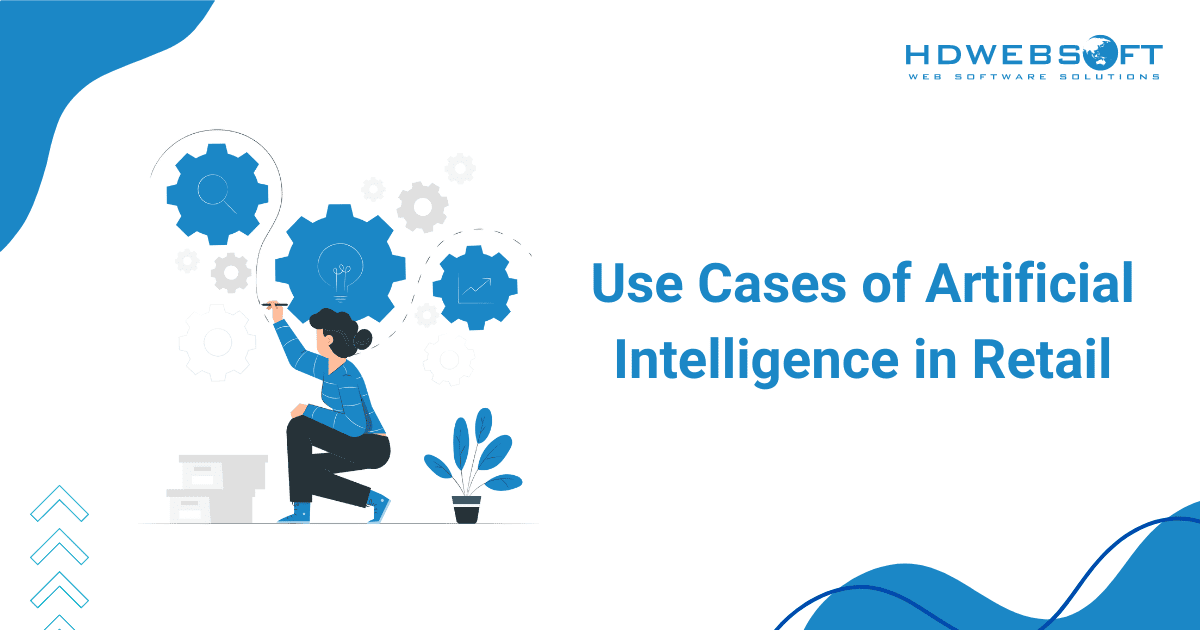
Retailers increasingly turn to AI to stay competitive. Let’s dive into some of the most exciting and impactful artificial intelligence in retail use cases today.
Personalized Shopping Experiences
One of the most visible and customer-centric use cases of AI for retailers is creating hyper-personalized shopping experiences. In this process, retailers use AI to analyze customer data such as browsing history, past purchases, and social media activity. As a result, AI in retail allows them to recommend products that align with individual tastes and preferences. Furthermore, this level of personalization not only enhances the shopping experience but also boosts customer loyalty and increases sales.
According to a report by McKinsey, companies that excel at personalization generate 40% more revenue than average players. AI’s ability to curate personalized recommendations in real time is why many online shoppers feel like the products they see are tailor-made for them.
In brick-and-mortar stores, AI-powered recommendation engines can assist sales staff in suggesting the right products based on customer data. This allows for a more tailored in-store experience as well.
AI-Powered Customer Service
Customer service is another area where artificial intelligence in retail is making a big difference. Virtual assistants and chatbots powered by AI are becoming a staple in both online and offline retail environments. These tools help answer customer queries, guide shoppers through their purchase journey, and resolve issues, all without human intervention. Consequently, AI-powered chatbots are available 24/7, providing instant customer support and freeing up staff to handle more complex tasks.
In particular, a customer might ask a chatbot on an e-commerce site for sizing recommendations or product availability. The chatbot can quickly respond with relevant information. Not only does this improve customer satisfaction, but it also helps retailers save on operational costs.
Dynamic Pricing for Real-Time Flexibility
Dynamic pricing is another essential case of use in retail AI. Retailers have always adjusted prices based on factors like supply and demand. However, AI takes this concept to the next level by doing it in real-time. The technology automatically adjusts prices by analyzing competitor prices, inventory levels, customer demand, and even factors like local weather conditions.
For example, if demand spikes for a certain product, AI can raise the price to maximize profit while avoiding stockouts. Conversely, if a product isn’t selling as expected, AI in retail can lower the price to stimulate demand. This kind of agility allows retailers to continuously optimize sales and profit margins.
A recent study suggests that the global dynamic pricing market is expected to grow by $3.53 billion by 2025. This growth reflects the growing reliance of retailers on AI for competitive pricing strategies.
Efficient Inventory Management
Revolutionizing inventory management, AI in retail predicts demand with remarkable accuracy. Retailers can use AI algorithms to forecast future sales based on historical data and current trends. Moreover, they can consider external factors such as seasonal fluctuations or major events. This means they can optimize stock levels, reduce waste, and avoid out-of-stock scenarios.
For example, during the holiday season, AI can help retailers prepare by predicting which products will be in high demand. Or better, it can also determine how much inventory to stock. This proactive approach ensures that retailers are always ready to meet customer needs while reducing overstock and understock issues, which is especially useful when integrating into e-commerce software.
Autonomous Checkout and Cashier-Less Stores
AI is also making waves with the rise of cashier-less stores and autonomous checkout systems. For starters, stores like Amazon Go have pioneered this technology. Customers can simply walk in, pick up items, and leave without waiting in line or checking out with a cashier.
In the process, AI in retail, powered by computer vision and sensors, tracks which items are taken off the shelves. Then, it automatically charges customers as they exit the store.
This kind of innovation is not only a huge time-saver for customers but also reduces labor costs for retailers. It’s a glimpse into the future of retail, where convenience and efficiency are maximized through AI technologies.
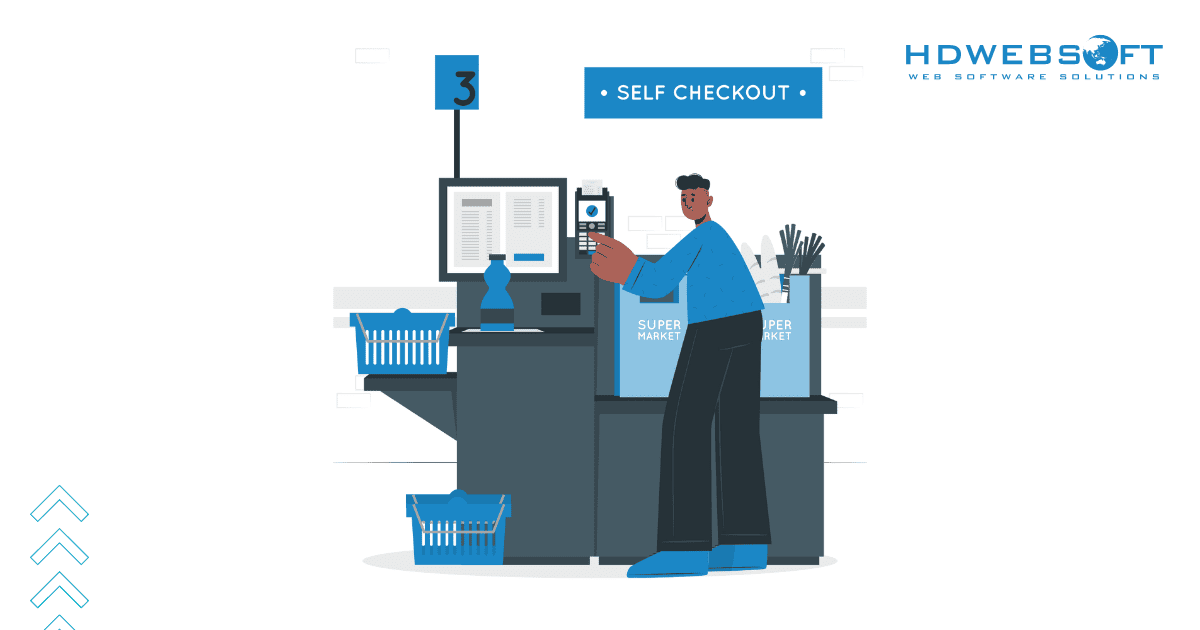
AI in retail helps cut the line of waiting customers by automating the checkout process or self-checkout.
The Importance of AI for Retailers
The importance of AI for retailers cannot be overstated. It allows them to streamline operations, make data-driven decisions, and enhance the overall shopping experience.
Enhancing Customer Experience
One of the biggest reasons retail artificial intelligence is essential is its ability to create personalized shopping experiences. Today’s customers expect retailers to know their preferences, whether they’re shopping online or in-store. AI helps retailers deliver this by analyzing customer data, such as browsing history, previous purchases, and even location. As a result, this enables them to offer relevant product recommendations, discounts, and tailored communications. Ultimately, this level of personalization not only increases customer satisfaction but also builds loyalty, encouraging repeat business.

The more conveniences retailers bring to customers, the more loyalty and good reputation AI in retail brings to the brand.
Additionally, AI in retail-powered chatbots and virtual assistants is transforming customer service. This 24/7 support ensures that customers receive the help they need when they need it, enhancing their shopping journey.
Optimizing Operations
AI is also invaluable when it comes to improving operational efficiency. One of the most critical aspects of retail management is inventory control.
Overstocking or running out of stock can both hurt a retailer’s bottom line. Regardless, AI can help by predicting demand with remarkable accuracy. Specifically, by analyzing sales patterns, market trends, and external factors like seasonality, AI enables retailers to optimize their inventory levels. Resultantly, this helps in reducing waste and avoiding missed sales opportunities.
Furthermore, AI can automate many manual, time-consuming tasks, such as supply chain management, pricing adjustments, and even store layout management. This reduces human error and allows employees to focus on more value-added tasks, like customer engagement or strategic decision-making.
Data-Driven Decision Making
In the fast-paced retail environment, making quick, informed decisions is crucial. Fortunately, AI in retail allows retailers to harness the power of data, offering real-time insights into everything. As a result, this enables retailers to respond more effectively to changes in demand and adjust their marketing strategies. In addition, they can even predict future trends, all based on data-driven insights.
Staying Competitive
Finally, in an increasingly competitive retail landscape, AI is becoming a must-have for retailers looking to stay ahead of the curve. Those who embrace retail artificial intelligence are better equipped to adapt to shifting customer needs, streamline operations, and maximize profitability. Retailers who lag behind risk being left out as customer expectations continue to rise and technology drives the industry forward.
Future Prospects for AI in Retail
The future of AI in retail is incredibly promising, with exciting advancements on the horizon that will continue to revolutionize the industry.
One of the most anticipated trends is the further development of cashier-less stores and autonomous shopping experiences. With companies like Amazon already pioneering this concept, the future could see more widespread adoption. Hence, this innovation would drastically reduce wait times and increase convenience for shoppers.
Another area with vast potential is the integration of AI with augmented reality (AR). Imagine walking into a store and using your smartphone to instantly see how a piece of furniture would look in your living room. Even better, you could also see how a pair of shoes would fit with your outfit. This blend of artificial intelligence in retail and AR could create immersive, interactive shopping experiences like never before.

Augmented reality, as an AI in retail tech, is expected to be the future of the industry.
In the years to come, AI will likely play a key role in sustainability efforts. It will help retailers reduce waste, optimize supply chains, and develop eco-friendly strategies that resonate with increasingly conscious consumers.
Conclusion
AI in retail is more than just a trend—it’s the future of the industry. From personalized shopping experiences to efficient inventory management, AI is revolutionizing how retailers operate and how consumers engage with brands. The technology’s ability makes it an invaluable tool for retailers looking to stay competitive in a fast-paced, digital-first world.
As AI continues to evolve, we can expect even more exciting developments on the horizon. These advancements will further transform the retail landscape and create new opportunities for innovation. Retailers who embrace AI will be well-positioned to meet the demands of tomorrow’s consumers and stay ahead in the rapidly changing market.
As a leading software development company, HDWEBSOFT is here to help. We specialize in creating cutting-edge AI solutions tailored to the unique needs of the retail industry. Our experienced developers and AI experts can help you harness AI to enhance customer experience, optimize operations, and drive sales.
Whether you’re looking to implement AI-powered chatbots, personalize product recommendations, or optimize your inventory management, HDWEBSOFT has the expertise to deliver results. Contact us today to learn more about how our AI solutions can help your retail business thrive.









